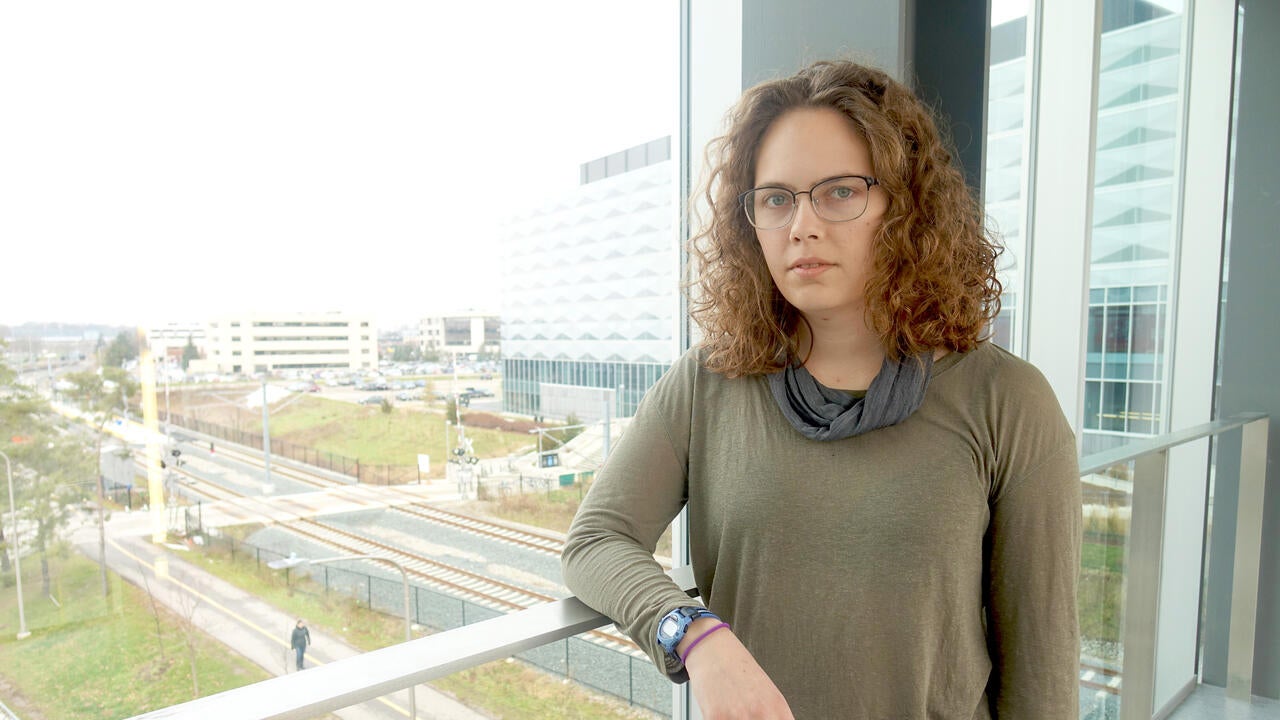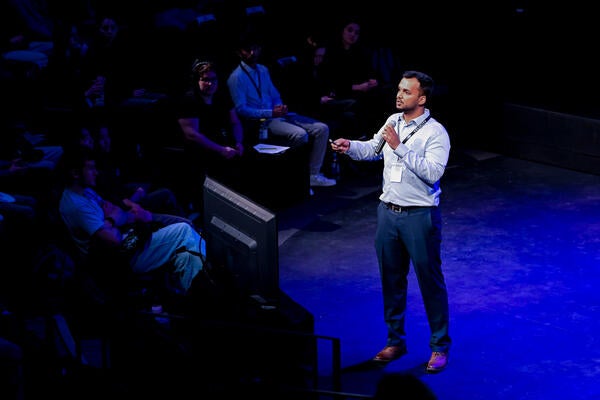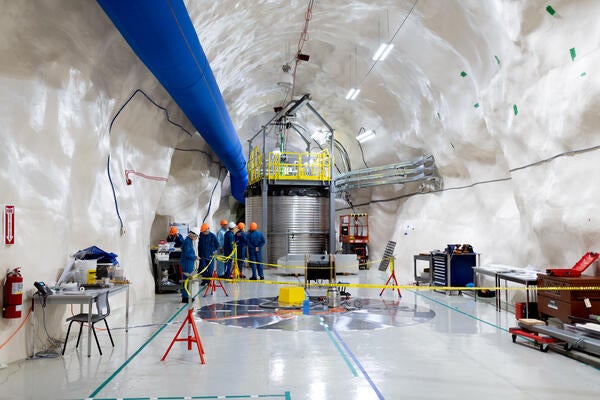
National Day of Remembrance is a time to reflect on the past and look forward to the future
Mechanical engineering masters student looks to engage the community to encourage gender equity.

Mechanical engineering masters student looks to engage the community to encourage gender equity.
By Ariana Mayer University RelationsToday marks the 29th anniversary of the 1989 Montreal Massacre, a mass shooting that took place at École Polytechnique de Montréal that resulted in the loss of 14 female engineering students in an act of gender-based violence. In honour of the 14 young women who lost their lives, the University of Waterloo is holding an Action to End Violence Against Women service for all students, faculty, staff and community leaders to reflect and continue to seek out justice and equal opportunity for all.
“I don’t think learning about something that interests you should be only for one gender,” said Leah Kristufek, a mechanical engineering master’s student at the University of Waterloo who has witnessed some of the aftereffects that followed the Montreal Massacre. The tragic event stirred fear and doubt into many women across the STEM fields and beyond.
Kristufek recalls a story of a girl she knew who was planning on applying to engineering out of high school, only to be talked out of it by her parents who feared that it would not be safe for her to pursue. In response to negative effects like these, Kristufek wondered: “Who are we losing out on, and what potential innovations are we losing out on because some women didn’t pursue STEM?”
Despite the tragedy that affected women in STEM for generations, Kristufek believes that recognizing and memorializing events like the Montreal Massacre can help shed light on gender-based violence and some of the struggles that women face daily. As a participant in the HeForShe initiative on campus, she believes that opening up discussions on gender-based issues with all members of the community, especially men, is the key to achieving and sustaining gender equity in our communities.
Kristufek has already noted the change in female representation in STEM disciplines since starting her undergrad in chemical engineering in 2011. While serving as an orientation leader during her undergrad, she was happy to see the growing number of women that are enrolling in engineering each year.
“You just see a lot more women in the halls of the engineering buildings, which I didn’t used to see very much,” Kristufek said, recognizing that this is partly due to a post-secondary push to encourage women to pursue STEM, adding that: “We are still in the process with that in the generations going through.”
With the great increase in female representation amongst previously male-dominated fields, Kristufek is hopeful that the continued consideration of women as they enter these fields will encourage more gender equity, both on and off campus. Kristufek feels it is imperative that women are given the freedom to enter the STEM fields as they wish to, and believes that, with the right encouragement, the barriers holding women back from their contributions can be broken.

Read more
Eight Waterloo researchers receive $25,000 each to develop health-tech solutions for Grand River Hospital, St. Mary’s General Hospital, Cambridge Memorial Hospital and the KW4 Ontario Health Team

Read more
Velocity Pitch Competition winner Grease Tech brings industrial machinery maintenance into the 21st century

Read more
New collaboration will allow quantum researchers to study effects of solar radiation on quantum computing
The University of Waterloo acknowledges that much of our work takes place on the traditional territory of the Neutral, Anishinaabeg and Haudenosaunee peoples. Our main campus is situated on the Haldimand Tract, the land granted to the Six Nations that includes six miles on each side of the Grand River. Our active work toward reconciliation takes place across our campuses through research, learning, teaching, and community building, and is co-ordinated within the Office of Indigenous Relations.